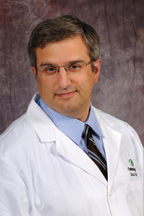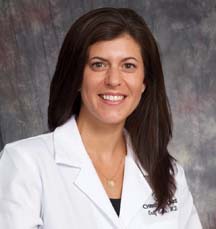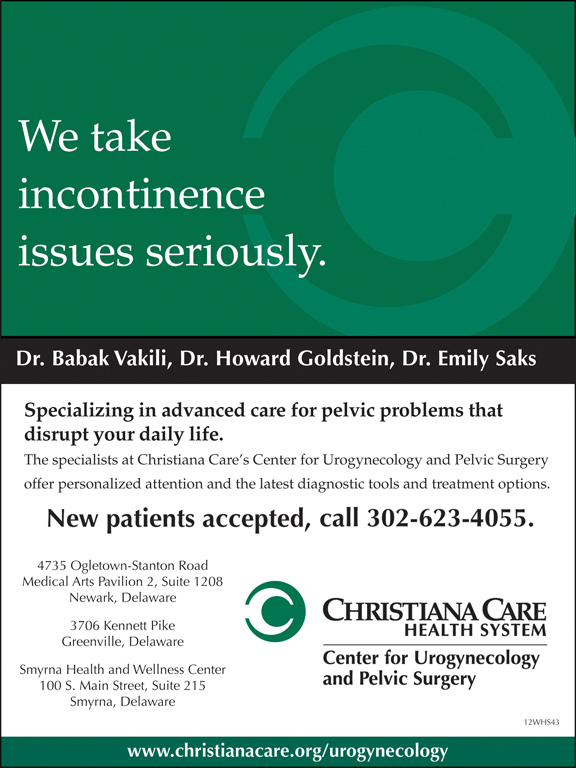Find Relief From A Dropped Uterus – And A Lift In Lifestyle
 By Babak Vakili, M.D.
By Babak Vakili, M.D.
Babak Vakili, M.D., is the director of the Center for Urogynecology and Pelvic Surgery. Dr. Vakili is a fellow of the American College of Obstetrics and Gynecology. He completed a fellowship in Female Pelvic Medicine and Reconstructive Surgery at the Louisiana State University Health Science Center in New Orleans, LA.
Women can’t see inside their bodies but they can often feel when something isn’t quite right.
If you feel like you are sitting on a small ball or experience a sensation of heaviness or pulling in your pelvis, you might be suffering from uterine or vaginal prolapse, a condition that occurs when the womb or other pelvic organs fall from their natural positions into the vaginal canal.
Prolapse can make sex painful and may cause lower back aches. It can trigger a sudden urge to go to the bathroom and can spark repeated bladder infections.
Uterine prolapse is typically, but not exclusively, the result of at least one vaginal delivery, especially if the baby was large and labor was long and difficult.
Because the muscles and ligaments that form the pelvic floor are stretched and weakened, it is difficult for them to hold the uterus in its proper place. In time, the uterus starts to sag into the vagina.
A lack of estrogen after menopause can contribute to uterine prolapse. So can obesity, chronic constipation and smoker’s cough.
Uterine prolapse isn’t a life-threatening condition. But it certainly can be distressing. So don’t delay getting help.
At the Christiana Care Center for Urogynecology and Pelvic Surgery, we often see patient of all ages who come seeking relief from a dropped uterus, although the condition also can impact younger women.
The center provides state-of-the-art treatment options for pelvic problems. My colleagues, Emily Saks, M.D., and Howard Goldstein, D.O., and I are the only doctors in Delaware who have completed three-year fellowships in urogynecology, a subspecialty that focuses on the treatment of pelvic floor disorders including incontinence and prolapse of the womb, bladder or vagina.
As your urogynecologist we will talk with you about the best way to remedy uterine prolapse, weighing the severity of the problem against your overall health and lifestyle. Our goal is always to help our patients remain active at every stage in life, whether they are dashing off to the office or playing with their grandchildren.
There are many treatment options for prolapse. For example, a mild case might be treated with a regimen of weight loss and pelvic floor exercises.
Another option is to use a pessary — a donut-shape plastic or silicone brace that holds a prolapsed organ in place. It’s similar to a diaphragm and can be fitted in the office.
Many women rely on a pessary for years; others use it only as needed – when they exercise, for example.
Alternatively, surgery could be the best way to go. (Women who are planning to have more children may not be good candidates for surgery.) Complete uterine prolapse might require a hysterectomy, in which the womb is removed; however we offer many other options.
Urogynecologists are trained in surgical procedures that move the uterus into its normal position by reattaching the pelvic ligaments that hold it in place. Recent advances also include highly successful minimally invasive techniques that allow surgeons to make repairs through laparoscopy, in which a slender tube is inserted through a tiny incision in the abdomen. As a result, women experience less pain and recover more quickly, moving on to a much improved quality of life.
The Christiana Care Center for Urogynecology and Pelvic Surgery is located in Suite 1208 of Medical Arts Pavilion 2, on the campus of Christiana Hospital in Newark. Appointments are also available at the Christiana Care Center for Women’s Health, 3706 Kennett Pike in Greenville, or 100 S. Main Street, Suite 215 in Smyrna. For more information or to schedule an appointment, call 302-623-4055 or visit www.christianacare.org/urogynecology.
Emily K. Saks, M.D., MSCE, is a urogynecologist with the Christiana Care Center for Urogynecology and Pelvic Surgery. Dr. Saks completed a residency in Obstetrics and Gynecology at Pennsylvania Hospital in Philadelphia and has completed a fellowship in Female Pelvic Medicine and Reconstructive Surgery at the Hospital of the University of Pennsylvania.

Howard B. Goldstein, D.O., MPH, is a fellow of the American College of Obstetrics and Gynecology. He
completed a fellowship in Female Pelvic Medicine and Reconstructive Surgery at Cooper University Hospital in Camden, NJ. He currently serves as the Director of Research and Education for the Division of Urogynecology.



